Editor’s Note: December 2019 Issue
Federalism in the Civil War Era This special issue focuses on the role of federalism in the Civil War era, primarily in the years before the war. Federalism—or the distribution of power among different governing bodies—defined how most nineteenth-century Americans understood their relationship to the government, both in theory and ...
Read More
Read More

Honoring and Remembering Indigenous Civil War Veterans in Public Spaces
A groundbreaking ceremony for the National Native American Veterans Memorial was held on September 21, 2019—the fifteen-year anniversary of the opening of the National Museum of the American Indian (NMAI). The memorial will be located on the grounds of the NMAI on the National Mall. The ceremony included the presentation ...
Read More
Read More
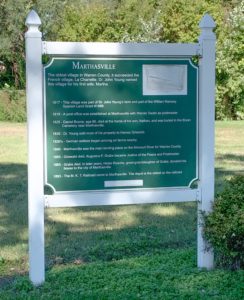
Removing Slavery from Westward Expansion: Two Case Studies of Public Memorials in Missouri
The town of Marthasville, Missouri, is located about forty-five miles west of St. Louis. The oldest town in Warren County, Marthasville today is a quiet place with fertile farmland, a lakeside resort, and numerous wineries. Although I have lived in Missouri most of my life, I had never been to ...
Read More
Read More
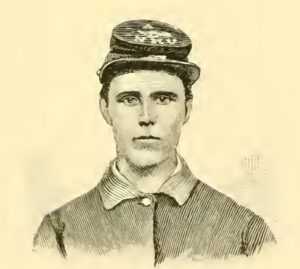
“I Donte Want to Fight”: One Union Soldier’s Struggle with Duty
James Madison Jones wanted nothing more than to be out of the U.S. Army. The young father had enlisted in the 12th New Hampshire Infantry in August 1862, but once he donned the blue uniform and left his family behind, Jones regretted his decision. He tried–and failed–to renege on his ...
Read More
Read More
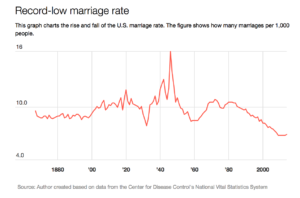
To Have and to Hold…or Not: Weddings, Independence, and the Civil War
Even with the legalization of same-sex marriage, the U.S. marriage rate is the lowest it has been in at least 150 years, according to economist Jay Zagorsky of Boston University. Another recent study from Cornell University researchers concluded that the U.S. has “large deficits in the supply of potential male ...
Read More
Read More
Hatred and Vengeance in the Classroom
War generates powerful emotions and conveying those emotions to students presents numerous opportunities and a few pitfalls. More specifically, hatred and calls for vengeance inevitably accompanied (if they did not precede) the outbreak of war, and certainly the American Civil War was no exception to that rule. Students in Civil ...
Read More
Read More

Author Interview: Joanna Cohen
Our author interview from the September 2019 issue is with Dr. Joanna Cohen. Joanna is a Senior Lecturer in American History at Queen Mary University of London. Her article is titled “‘You Have No Flag Out Yet’: Commercial Connections and Patriotic Emotion in the Civil War North.” She is the ...
Read More
Read More
Call for Applications for Editor, Journal of the Civil War Era
The George and Ann Richards Civil War Era Center seeks applicants for Editor of the Journal of the Civil War Era for a five-year term beginning January 2020. The Editor is supported by a team of associate editors, as well as a managing editor housed at the Richards Center. The ...
Read More
Read More
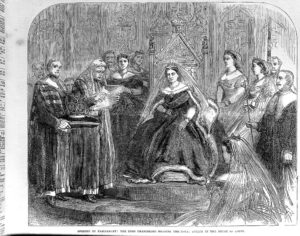
Queen Victoria’s Speeches to Parliament: The Role of the Civil War in British Politics
At the opening of each Parliamentary session, the British monarch delivers a policy statement crafted by the Prime Minister, explaining the cabinet’s plans for the forthcoming sitting of Parliament. With Parliament prorogued until October 14, 2019, when Queen Elizabeth II is supposed to read Prime Minister Boris Johnson’s agenda to ...
Read More
Read More
Editor’s Note: September 2019 Issue
The September 2019 issue is Judy Giesberg's last as editor of The Journal of the Civil War Era. She has been integral to the journal since its first issue in 2011, and the editorial team would like to thank her for her pathbreaking service. We have been privileged to work ...
Read More
Read More

Robert Colby Announced as Winner of Inaugural Tony Kaye Memorial Essay Award
The Journal of the Civil War Era is pleased to announce that the winner of the Anthony E. Kaye Memorial Essay Award for 2019 is Robert Colby, a postdoctoral fellow at Christopher Newport University’s Center for American Studies and Visiting Assistant Professor in the Department of Leadership and American Studies ...
Read More
Read More
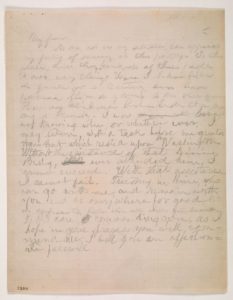
Teaching with Raw Primary Sources: The Value of Transcription
The rhythms of academic life make August an opportune time to reflect on past teaching and to plan new lessons. Teachers of history at all levels appreciate that primary sources can pique students’ curiosity and introduce them to historical methods. Whether through the Document-Based Questions featured in Advanced Placement exams ...
Read More
Read More
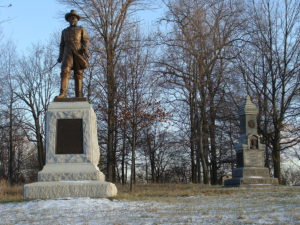
Are Tourists Falling Out of Love with Civil War Battlefields? Public Historians Respond
Last year I published a post on this website about visitation trends to Civil War historic sites within the National Park Service (NPS) during the Civil War Sesquicentennial from 2011 to 2015. After looking at the numbers I concluded that visitation to these sites remained relatively strong, but not everyone ...
Read More
Read More
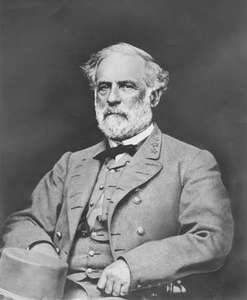
Sustaining Motivations and the General Officer: Robert E. Lee and the Death of John Augustine Washington III
Today we share our first post from new correspondent Barton A. Myers, who will be writing on soldiers, veterans, and military history broadly defined. Myers is Class of 1960 Professor of Ethics and History and Associate Professor of Civil War History at Washington and Lee University and the author of ...
Read More
Read More
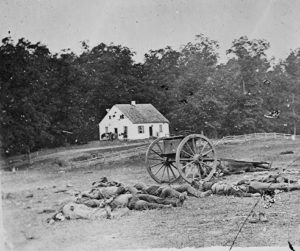
Teaching Civil War Battles and Leaders through Classroom Simulations
For as long as historians have chronicled and interpreted war, they have confronted the intertwined issues of contingency and battle. Historical contingency is a difficult concept, but it is fundamental to historical thinking and essential to understanding the significance of battles, military leaders, and decisions in war. A working definition ...
Read More
Read More
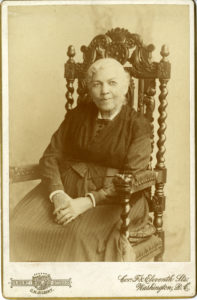
Harriet Jacobs: Working for Freedpeople in Civil War Alexandria
The popularity of the narrative Incidents in the Life of a Slave Girl has only grown since historian Jean Fagan Yellin connected what some believed was a fictionalized account, with Harriet Jacobs’s authentic experiences in slavery and freedom.[1] Multiple versions of the text, and dramatic presentations based on it, abound ...
Read More
Read More